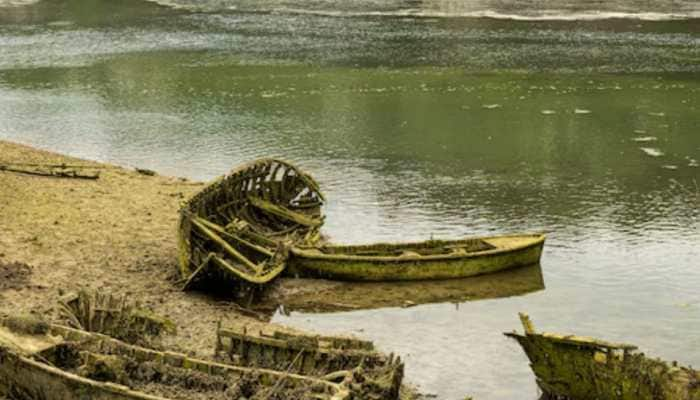Delhi’s air quality turns ‘VERY POOR’ as people burst firecrackers flouting ban
Delhi AQI turns very poor: Delhi govt had last week warned that bursting firecrackers in the national capital on Diwali will attract a jail term of up to six months and a fine of RS 200. However, a large number of Delhiites were seen bursting high-decibel firecrackers on Diwali night flouting the ban imposed on these by the city government. In the neighbouring cities of Gurugram and Faridabad too, many people burst firecrackers.
- Delhi's AQI turned ''very poor'' on Monday
- People in Delhi-NCR burst firecrackers despite the ban
- In the neighbouring cities of Gurugram and Faridabad too, many people burst firecrackers
- Delhi govt has last week imposed a ban on firecrackers
Trending Photos
)
NEW DELHI: Delhi’s air quality turned ‘very poor’ on Monday night with people celebrating the festival of Diwali by bursting firecrackers despite a ban imposed by the AAP government in order to keep air pollution levels in check. According to Swiss organisation IQAir, the air quality in Delhi turned “very poor” on Diwali night amid an increase in stubble burning, bursting of firecrackers and moderately unfavorable meteorological conditions which allowed the accumulation of pollutants.
The capital's air quality index (AQI) stood at 326 at 7 AM on Tuesday morning. The neighbouring cities of Ghaziabad (285), Noida (320), Greater Noida (294), Gurugram (315) and Faridabad (310) reported 'poor' to 'very poor' air quality.
Delhi's air quality in 'very poor' category, with AQI standing at 323; visuals from India Gate pic.twitter.com/YATIwXfCBk — ANI (@ANI) October 25, 2022
Delhi on Diwali was by far the most polluted city in the world followed by Lahore in Pakistan, it said. On Monday night, Delhi's maximum temperature settled at 31.2 degrees Celsius, a notch below the season’s average. The minimum temperature was recorded at 14.5 degrees Celsius, two notches below the season’s average.
Humidity levels oscillated between 43 per cent and 90 per cent. Delhiites woke up to a pleasant Monday morning with the minimum temperature settling at 14.9 degrees Celsius, two notches below the season’s average. The relative humidity at 8.30 am was recorded at 82 per cent. The weather department had forecast mainly clear sky for the day with the maximum temperature likely to settle around 31 degrees Celsius.
It may be recalled that Delhi Environment Minister Gopal Rai last week said bursting firecrackers in the national capital on Diwali will attract a jail term of up to six months and a fine of RS 200. However, a large number of Delhiites were seen bursting high-decibel firecrackers on Diwali night flouting the ban imposed on these by the city government. In the neighbouring cities of Gurugram and Faridabad too, many people burst firecrackers.
Environmental experts had earlier warned that if the volume of firecrackers burst goes up again this year, the air quality is likely to dip further. Delhi government had set up a total of 408 teams to implement the ban. The Delhi Police set up 210 teams under assistant commissioners of police, while the revenue department set up 165 teams and the Delhi Pollution Control Committee 33 teams.
An AQI between zero and 50 is considered “good”, 51 and 100 “satisfactory”, 101 and 200 “moderate”, 201 and 300 “poor”, 301 and 400 “very poor”, and 401 and 500 “severe”.
Stay informed on all the latest news, real-time breaking news updates, and follow all the important headlines in india news and world News on Zee News.
Live Tv







)
)
)
)
)
)
)
)
)
)
